Sacred outlook – seeing beyond ordinary perception in modern culture and American Buddhism
‘Beware of confining yourself to a particular belief and denying all else, for much good would elude you – indeed, the knowledge of reality would elude you. Be in yourself for all forms of belief, for God (Truth) is too vast and tremendous to be restricted to one belief rather than another.’ – Ibn ‘Arabi
{I write this for myself, and my family; Here is the great ‘what if it is so?’…}
Editorial By Jason Espada
Jason Espada is a writer and classical musician living in San Francisco; a steward of his father’s photography, and the founder of abuddhistlibrary.com. Over the years, he’s made a number of recordings of Buddhist teachings. These days his focus is on the connection between spirituality and social action. His new website is jasonespada.com.
This is an excerpt from Jason Espada’s book From A Belief in the Miraculous – Buddhism, Magic, and A Sense of the Sacred, available at booksellers including Amazon. *

So much of our pessimism and despair comes from the limited views we that hold of ourselves and this world that we live in. This is not entirely our own fault. It comes as well from our culture and upbringing.
We would expect that religions, such as Buddhism, would offer an alternative to the one dimensional world of consumerism and competition, and to the flat, affect-less life of scientific rationalism. Instead, we find that Buddhism is often presented strictly as another philosophy, or just as psychology, and divorced from many of the elements that would classify it as a religion. This is understandable —to a point. Many people come to Eastern religions because Christianity and Judaism didn’t work for them. And what’s worse, they’ve had those teachings proselytized at them by arrogant, narrow minded fanatics.
We like to joke that many American Buddhists are in recovery from Western religion. For many, the straightforward, practical teachings on how to take care of our minds are of great appeal and benefit. This is all good, but, if this is all it is, there are some profound and precious things that are being left out of our understanding of ourselves, and our world and of Buddhist teachings.
One of the great things about these times is that we are able to look at how other people received and practiced these teachings. One thing we can notice is that the starting place for many other people, in other cultures and times, has been very different than our own.
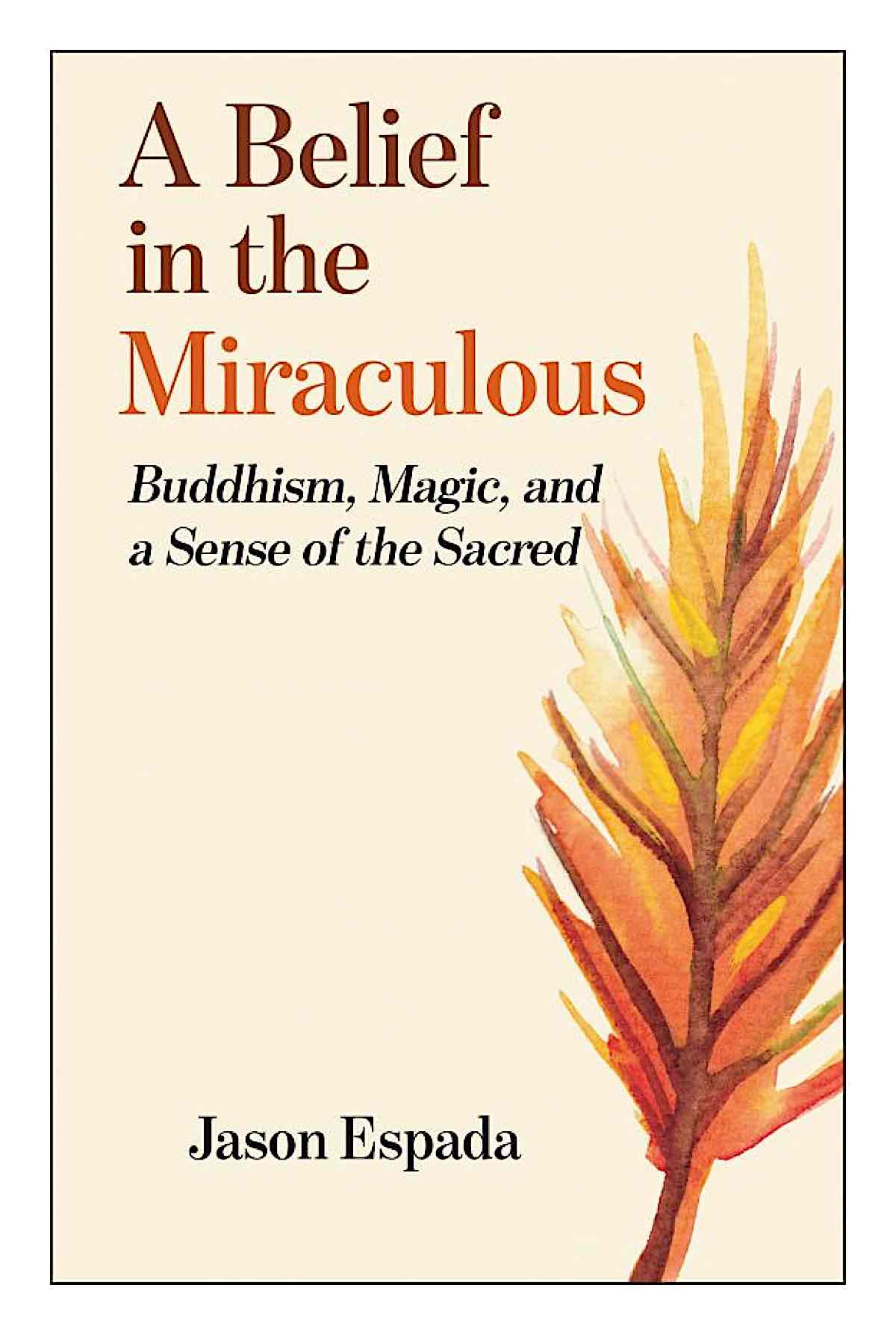
Guiding influence of Enlightened Beings
In most places, Buddhism is a tradition that is alive with wonder, rich with the presence of the sacred, and with the guiding influence of Enlightened beings. Here are a couple of quotes from modern teachers: The first is by Ani Tenzin Palmo, a British born nun, ordained in the Tibetan Tradition. She says:
“We are not alone. This universe is full of Buddhas and Bodhisattvas who are on our side. And, as is known in all Buddhist countries, although it is not always emphasized in the West, we can pray to them.’
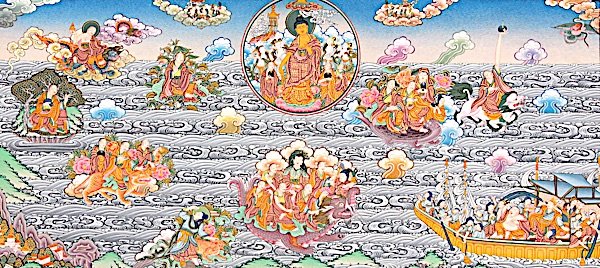
And Lama Zopa Rinpoche has said: ‘You are not alone because all the time there are numberless buddhas and bodhisattvas surrounding you, loving you, guiding you, that is what they do….’
Now, if we compare this way of thinking to the general way people view themselves and this world, and the way that Buddhism is usually taught in the Theravada and Zen centers in America, there is a very great difference. One perspective says that we’re pretty much on our own. Another perspective says that there are many enlightened beings we can call on, and that can help us. Now, suppose for a moment, What if this were so?
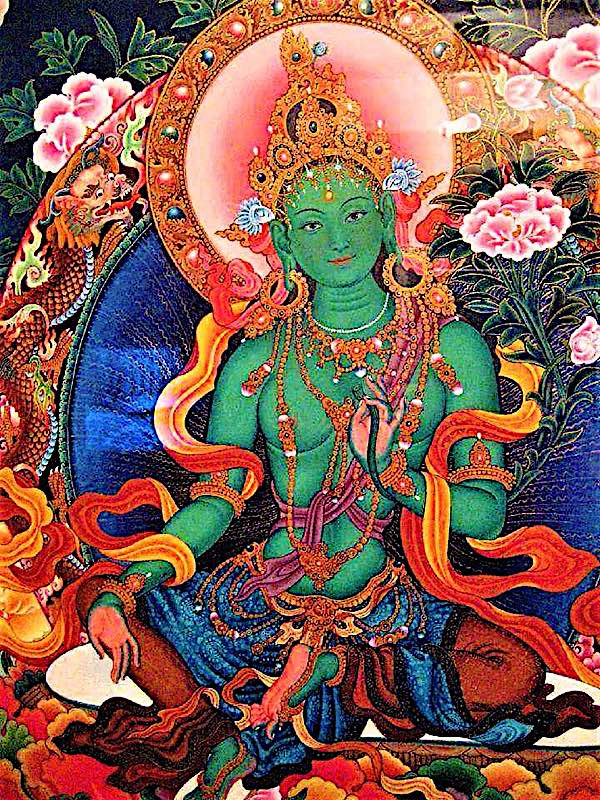
If this is true, as I think it is, then we’ve reduced our view of this world and ourselves, our traditions, and our options, and this is surely a great loss to us all. What we have when this is the case is a tradition that has been greatly dis-empowered, and therefore generations of students, and those they are connected with, are being deprived of very great benefit.
I recently heard an interview with Sister Joan Chittister, where she said that the maps we use are important, because they are what will be followed by future generations to make their way in the world.
My world is rich, but many modern day Buddhists don’t share this view, and they explicitly or tacitly deny so much of our potential and possible experience. There are abundant resources available by which we can actualize our aims, and if these are not taken advantage of, then it’s like going hungry, and having our whole family go hungry, while there are fields nearby that can satisfy those needs. It is such an unnecessary tragedy to not see this much.
Ani-la added that: “This is not being theistic – this is being practical. If there’s help out there, why not invoke that help?”
May we all be well and happy
May we all awaken to the blessings that are continually here for us!
In a rich world view, Saints, Buddhas, Enlightened Intelligence, Bodhisattvas, and Divine help are available. If we don’t know this much, then what are we left with? – a string of doctrines, and we’re on our own? No! Our lives, our world, our Traditions hold inconceivably so much more than that! And while it’s true that not everyone can perceive these things, or has an affinity with thinking this way — this is how it is in the world — they should at least consider the possibility of help from these sources. And they should at least not dissuade others who can draw great benefit, solace and inspiration from the presence of enlightened beings in their world view.
Another thing that leads people to reject all religious views is that prayers or the methods used don’t always work in the way they want them to. It’s the truth that many factors are involved either in bringing a result, or when something does not work. Our lives have this inconceivable complexity to it, as much as we may want to over-simplify things. I can say with many others that the sum of it is beyond me. What then to do?
Where the methods, and the views they are based on enter into it, and I think the reason they shouldn’t be rejected outright, but taken up where and when we can, is that they are born of our collective instinct for knowing, and for making things right in our lives. These are methods that have been reaffirmed in every generation. They are our inherited wisdom of what has worked in the past, very often beyond anything that was thought possible.
Let’s look at this together. This is how it is in these times: the common, mundane perceptions we live with and pass around are really more accurately de-valued, degraded views, of ourselves, each other, and our world. This reaches these days, unfortunately, even into how religions traditions are taught and received.
I wrote this poem a few days ago:
A grey scale teacher
splashes his grey scale paint-views
onto everyone and everything
They are a danger!
There is no joy there,
no color,
little depth of feeling,
little or no poetry or wonder,
richness or inspiration
Deprived themselves,
they deprive others…

Over-reliance on rational thinking
Part of the problem for us Westerners is our over-reliance on rational thinking. This function has its place, but there are also some things that only come to us through the door of the love, the door of the heart, through faith and intuition, or direct experience. If we rely too much on the intellect here, it blocks us.
I’ve thought that one analogy that works to describe both what’s true about the rational view and what it leaves out is a black and white photograph of a color scene. It’s true as far as it goes, but there are many elements that are not seen. Another analogy I thought of is this:
If we look at an ocean through a pinhole,
what we see
is a pinhole’s worth of the ocean
It’s like this.
Many spiritual truths don’t lend themselves to being contained within concepts, and those who live just in the intellect suffer the loss of so many things, like the perception of beauty, mystery, wonder, intuition, inspiration and delight… These things are seen with the eyes of the spirit, and not with the eyes of the intellect alone.
Another element that plays into a common, mundane view is our pride. Every tradition, and common sense too tell us that humility is necessary for learning. It would be one thing if we knew we were arrogant, but when even this much self knowledge is lacking, it’s really hard to learn from our teachers, this world, and our deeper nature. This is related to our receptivity. We can say: great humility, great receptivity; small humility, small receptivity; and no humility, then no receptivity whatsoever…
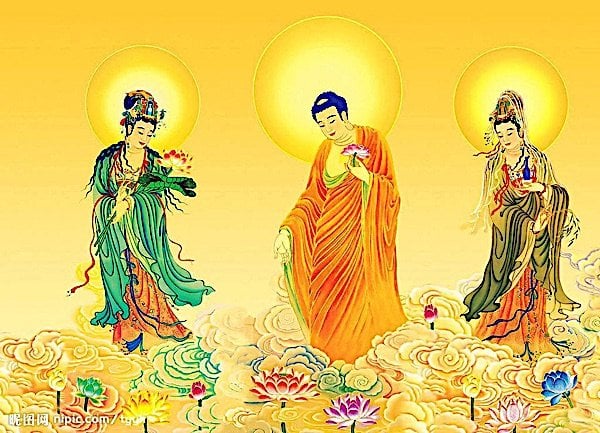
From culture comes a self-created worldview, and self-fulfilling prophecy
{Here is a sketch of how de-valued, ordinary perceptions of ourselves and our world develop, and how they can be undone. Like any sketch, it leaves out many things, but hopes to catch enough of the essential structure of what’s going on to communicate its message.}
We live in a culture and a time that is lacking in its sense of the sacred. Wherever the best of human values are not given enough attention, or where religious culture is mocked or ignored, and where a sense of the beautiful is overridden by the volume and quantity of meaningless things, then we become inwardly impoverished.
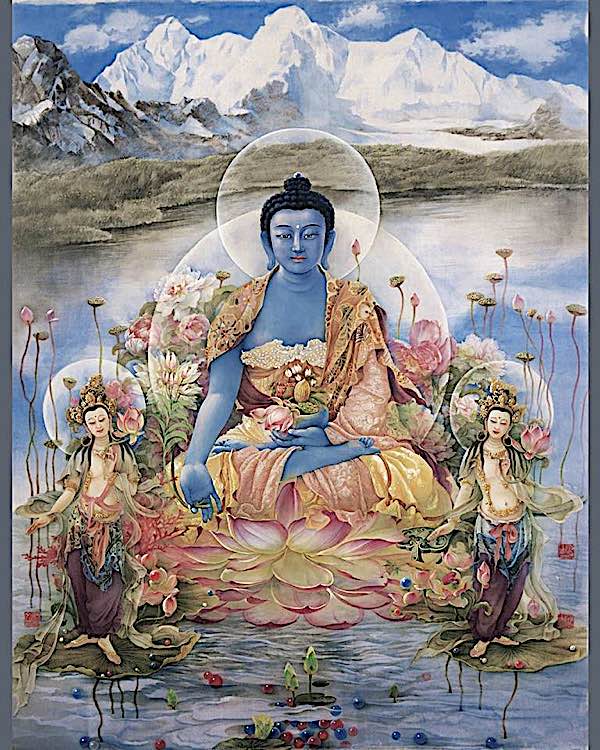
We live in grossly materialistic times, that deny of the existence of everything beyond the reach of our ordinary five senses. Be assured, this has not always been the case in other times and cultures.
We may pride ourselves on having gotten over what we haughtily call ‘infantile’ views, of a spiritual world, or any higher order than what the average person can see. We denigrate ‘magical thinking’ as naïve, uneducated, false and misleading. We’re so proud of our reasoning and science, and we set that as the standard for everything.
Modern consumer culture then isolates people, and over time, the human connections we all need grow thin. We become suspicious of our neighbors and friends, and set apart from family. The prevalent perspective is actually nihilistic, life denying, a tragic distortion of who and what we are.
The views many of us have inherited, just by the fact of having been born here, are then reinforced by our emotional reactions, which are then reflected back to us as appearances that are colored or tainted by our own minds. If our mind is not dealt with skillfully, a patina can cover everything. What all this adds up to is a disempowered view of what it is to be alive, to be a human being in this precious world of ours.
Collective views are shared in mostly unnoticed ways. They are pervasive, and are the ground of our sense of the choices we have, for change or development, or to remedy the problems we face.
To counteract this perception, or rather, misperception, we should be able to recognize diminished values, and degraded views wherever they exist, in ourselves, our family and neighbors, and in the world, so that we can replace them with something truer, something ever closer to the ideal. At the very least, our religions traditions and philosophies should offer us an alternative to nihilism. Life is available, and someone should say it out loud.
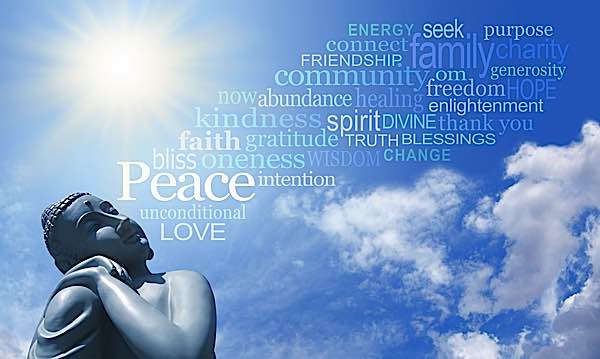
To love is to begin to remember who we are
What is it that brings light back into our lives? What will cause us to see ourselves and our world as it really is? Where will we find strength for all we need to do, and vision, and grace? Everyone, no matter whether they are affiliated with a tradition or not, can love. It can be a love for family, for art, for nature, for our teachers, for our young…
Love is the eye that sees beauty. In that one virtue there is light, and strength. There is daily food for the journey, courage and healing. We can add to this affection for our world a basic practice of meditation that quiets and clarifies the mind. Together, these two can enhance and deepen each other.
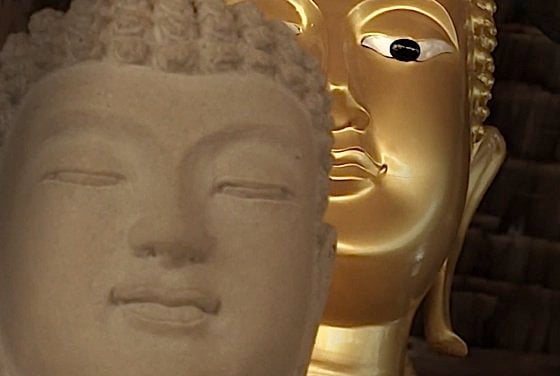
We struggle more than we need to, when we do everything but our inner work. That, we give short shrift. But this is that ‘one needful thing’. With love, and regularly taking time for meditation and self cultivation, as a basis, and a way of life, we can begin to appreciate what Traditions offer, their great gift to us all.
In Tibetan Buddhism, basic ignorance manifests as what they call ‘impure perception’, or ‘ordinary perception’, the mundane view of the world that we carry with us, and this is seen as the root cause of how we limit ourselves and suffer. The opposite of this is called an enlightened view, pure perception, or sacred outlook. This is a way of experiencing the world as essentially divine in nature, having great beauty and potential.
The following principles go beyond Buddhism alone, to reflect something of what is seen and lived with in other Traditions as well, and in the lives of contemplatives. They stand in radical contrast and in eternal opposition to the common, mundane view. Here are few tenets of a magical world view, pure perception or sacred outlook:
- that all life is sacred;
- that the Divine, freedom and peace, the Kingdom of Heaven, is within us all
- that our fundamental nature is pure
- therefore, that we all have the potential to become free from suffering and attain happiness; we can accomplish great benefit for ourselves and others
- that this world is sacred, alive and responsive, and that we are inseparably connected to it;
- that we are always connected to each other, to our whole family
- that there are other worlds, other realities
- that there are many levels of beings, seen and unseen
- that we are not alone in this world
- that there are powers we can call on, Saints and Saviors, Buddhas and Bodhisattvas, Ancestors, and divine beings that will respond and help
- that we are multi-dimensional beings, and so, things such as distant viewing, absent reading, and distant healing are possible
- that there are faculties beyond the ordinary that can be developed, each according to our unique temperament and gifts, but to some extent by everyone
- that prayer is effective
- that ritual works
- that mantra works
Enlightened worldview
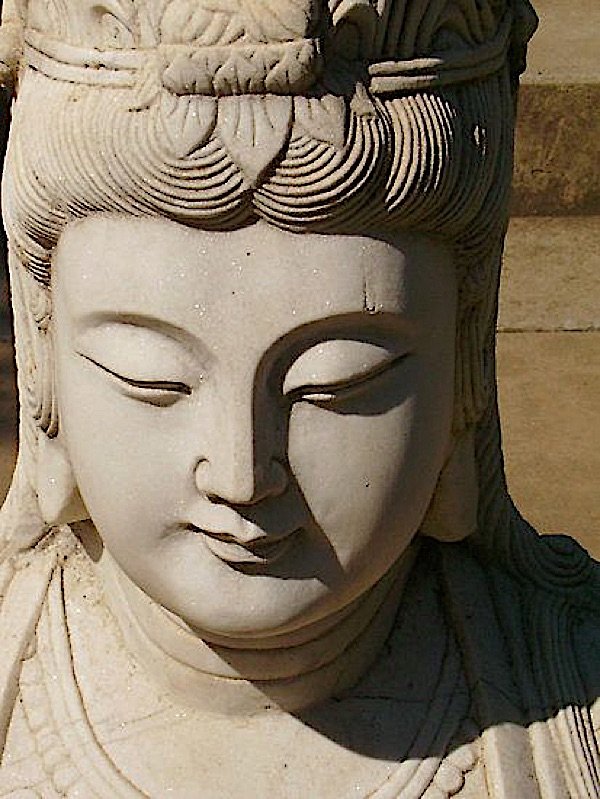 An enlightened worldview, however we come to it, offers us spiritual food, expansive vistas, and the means to accomplish our aims; it offers us support, whenever and wherever it is needed most. I find such views closer to the truth of how things are. Whatever methods we then use, there is a workable operating basis for living that is full and rich. We are empowered by such views, and the heritage of our great resources is again, as ever, open to us.
An enlightened worldview, however we come to it, offers us spiritual food, expansive vistas, and the means to accomplish our aims; it offers us support, whenever and wherever it is needed most. I find such views closer to the truth of how things are. Whatever methods we then use, there is a workable operating basis for living that is full and rich. We are empowered by such views, and the heritage of our great resources is again, as ever, open to us.
From an enlightened perspective of this kind, the spiritual practices we do, such as study, meditation or prayer, aim to clear away what keeps us from knowing the truth about ourselves, and our lives here; the fullness of the gifts our teachers and benefactors have given to us, and what we have to draw from to act, to set things right as much as we can here in this world.
May we all be aware of our true heritage,
and live lives of generosity,
great joy, and fulfillment,
of great peace, well being,
and benefit to all!
NOTE
This is an affiliate link. If you prefer not to use affiliate links, simply go to your favorite bookseller and search based on ISBN, author or title. With affiliate links, Buddha Weekly earns a small commission which helps support the “Spread the Dharma” mission. Your price is unchanged.
1 thought on “Sacred outlook – seeing beyond ordinary perception in modern culture and American Buddhism”
Leave a Comment
More articles by this author

The Great Way that benefits all sentient beings: motivated from the heart! An introduction to Mahayana Buddhism

Why the Buddha is Regarded as the Supreme Healer; plus, a daily healing meditation anyone can practice.
Search
Latest Features
Please support the "Spread the Dharma" mission as one of our heroic Dharma Supporting Members, or with a one-time donation.
Please Help Support the “Spread the Dharma” Mission!

Be a part of the noble mission as a supporting member or a patron, or a volunteer contributor of content.
The power of Dharma to help sentient beings, in part, lies in ensuring access to Buddha’s precious Dharma — the mission of Buddha Weekly. We can’t do it without you!
A non-profit association since 2007, Buddha Weekly published many feature articles, videos, and, podcasts. Please consider supporting the mission to preserve and “Spread the Dharma." Your support as either a patron or a supporting member helps defray the high costs of producing quality Dharma content. Thank you! Learn more here, or become one of our super karma heroes on Patreon.
Jason Espada
Author | Buddha Weekly
Jason Espada is a writer and classical musician living in San Francisco; a steward of his father’s photography, and the founder of A Buddhist Library: http://www.abuddhistlibrary.com. Over the years, he’s made a number of recordings of Buddhist teachings. These days his focus is on the natural connection between spirituality and social action. His new website is at JasonEspada.com.






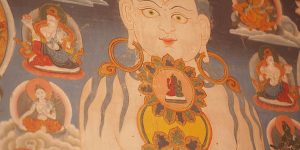






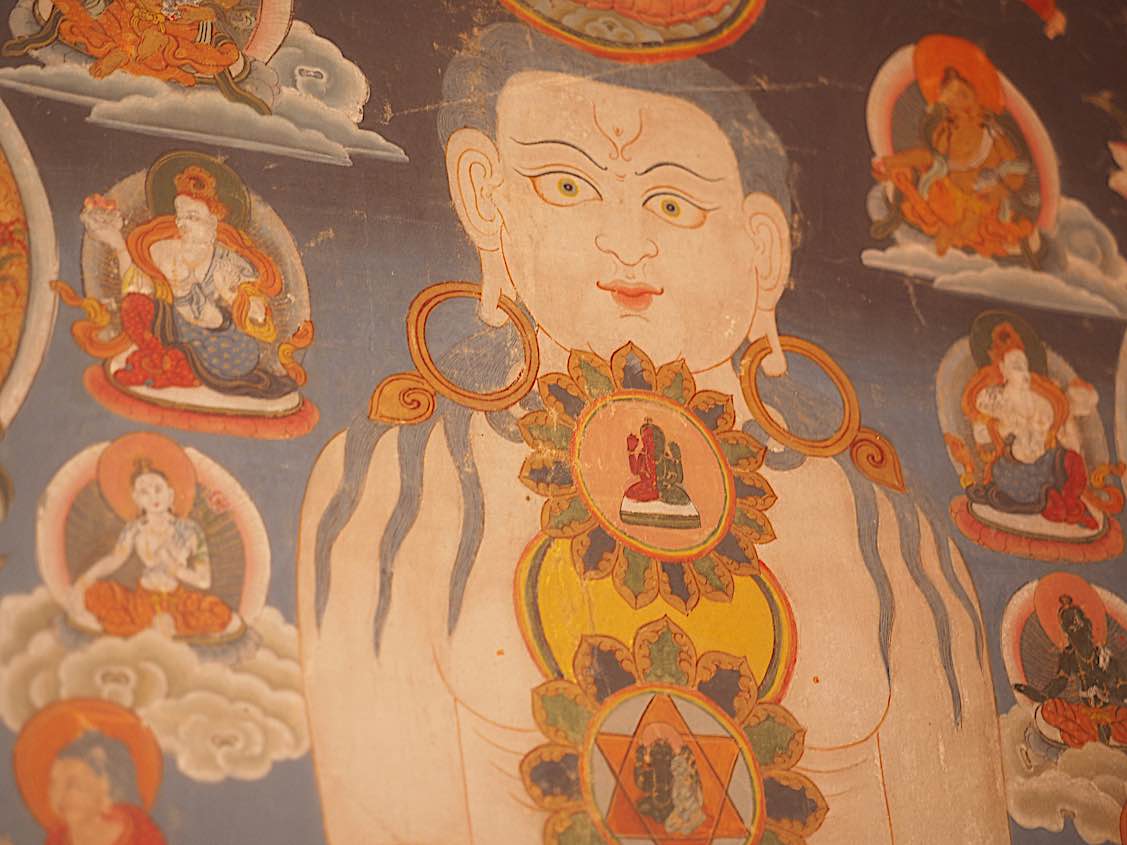


„We are not alone. This universe is full of Buddhas and Bodhisattvas who are on our side.“
True story! 🙂 The „Celestial Hierarchy“ is real. Many enlightened beings watch over and guide humanity’s evolutionary journey. We are never alone…
„Many spiritual truths don’t lend themselves to being contained within concepts, and those who live just in the intellect suffer the loss of so many things, like the perception of beauty, mystery, wonder, intuition, inspiration and delight… These things are seen with the eyes of the spirit, and not with the eyes of the intellect alone.“
Well said. Thank you, Jason. I always enjoy your perspective on things. You are a voice of sanity and reason.